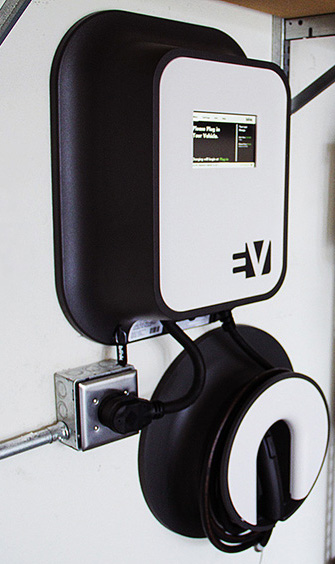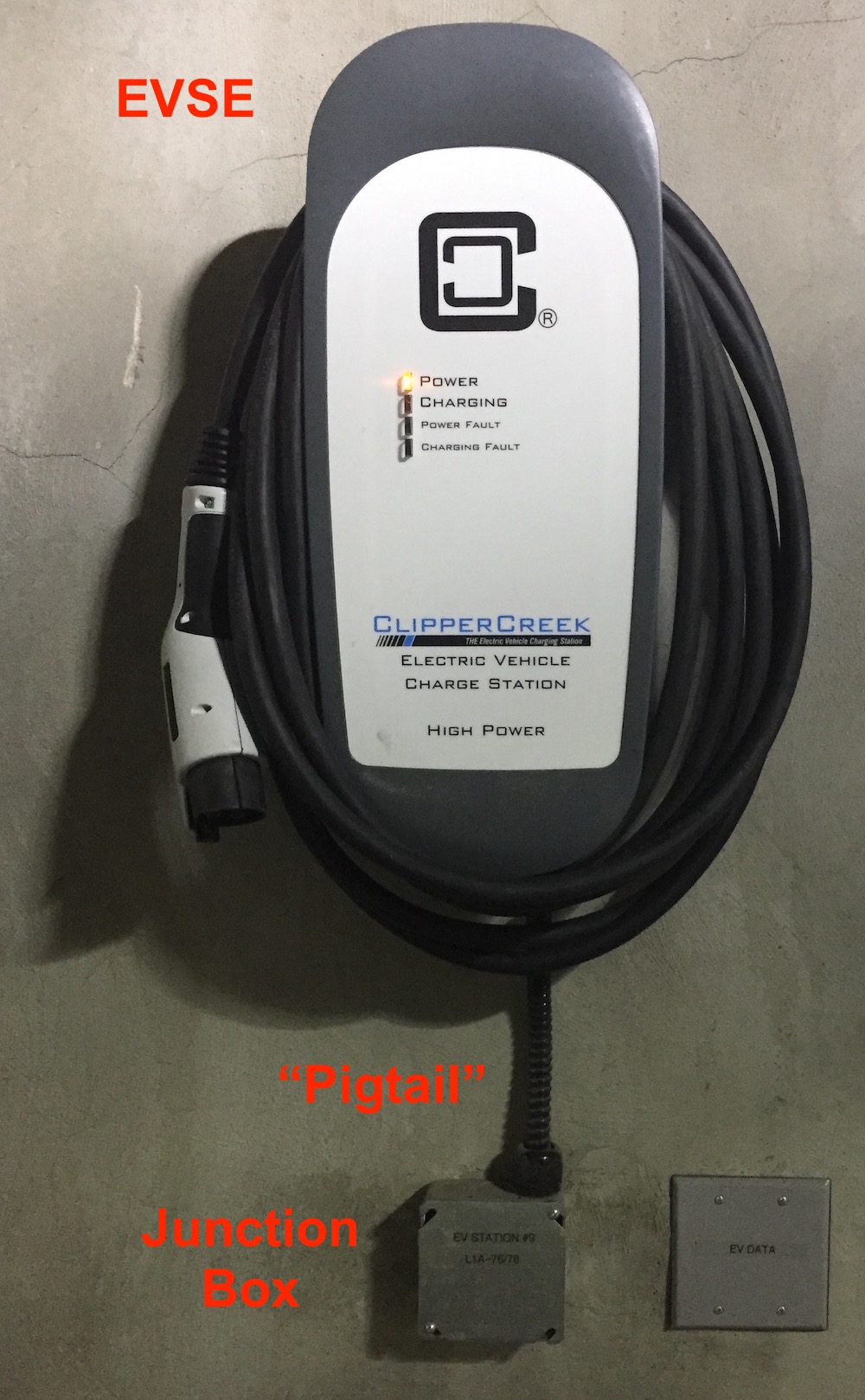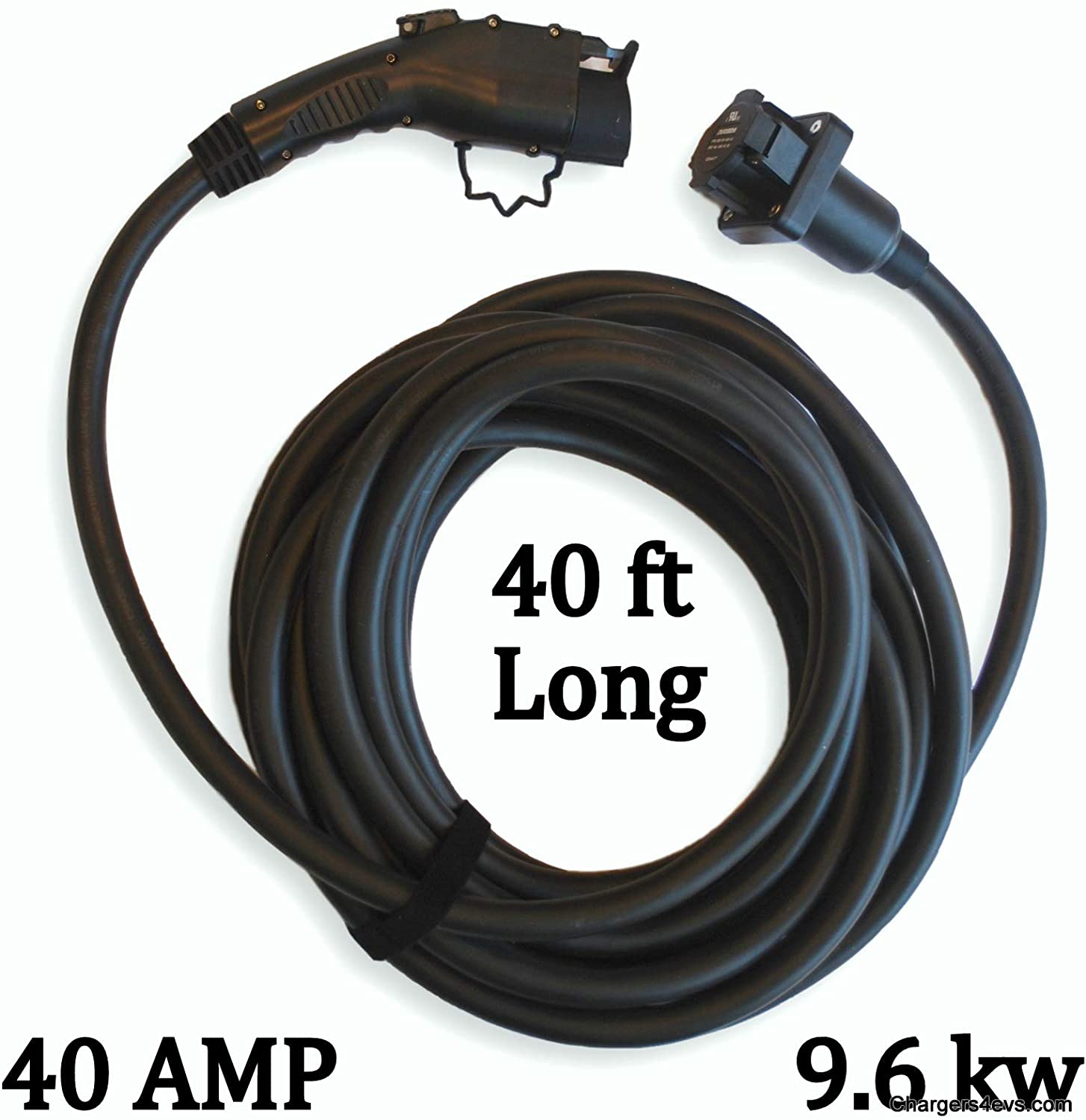Last Update: April 13, 2019
The good news is it is incredibly easy to set this up at very little cost, depending on your need. Many people have a dedicated parking space with an electricity outlet nearby that they control.
Can an electric car be charged at home?
Well, yes, of course. Electric car owners have the privilege of being able to refuel their cars at home. Gasoline car owners don't have this privilege and instead must go out of their way to find refueling stations.
An electric car can be refueled anywhere there is electricity.
Gasoline cars cannot refuel anywhere, they can only be refueled at gasoline stations.
Put those two statements in your noodle and think about the freedom electric car owners have.
Can you plug your electric car into a regular power outlet?
No. For safety reasons the powers that be determined it was best to require a special charging connector to recharge electric cars. The effect of that decision is you're required to use a small adapter box that has the required safety interlocks.
An adapter box is included with every electric car. And there are other charging stations available to be purchased.
Why should we charge electric cars at home?
Let's get a question out of the way -- Gasoline car owners don't have to set up a refueling station at home. Why should electric car owners have to pay to set up a charging station? Isn't it unfair that we have to shoulder the extra cost of installing a charging station just to own an electric car or motorcycle?
It's a free world, and if you want to always charge your car at a public charging station by all means do so.
If you think about it, the gasoline price includes the amortized cost of gasoline stations. The pump price for gasoline is the wholesale cost of gasoline plus the markup imposed by the station owner, from which s/he pays all their expenses including the cost of the gasoline station. Hence, the fact that gasoline car owners pay for their refueling equipment is obscured and buried in the gasoline cost.
Electric vehicle owners with a home charging station pay for the equipment up-front, then have a cheaper fuel cost because the cost of electricity as a fuel is a fraction of the cost of electricity. And there is the luxury of home-based refueling, having a car that is always refueled is a big advantage over gasoline car ownership.
Setup
The lowest cost charging setup is using the charging cord supplied with the car. Every electric car is sold with such a cord. Using it with a good quality (not old and raggedy) power outlet is safe, and an inexpensive way to charge an electric car at home.
The cheapest setup also supports the lowest charge rate. Most of us will a higher charge rate, which will take a little bit of planning.
Charging station plugged into power outlet

The simplest method to set up home charging is to plug a charging station into a power outlet. Your home may already have a conveniently located power outlet. If not, it's easy to have one installed.
The two approaches to this are:
- Level 1: This is a regular 120 volt outlet, using the line cord charging station provided with the car. That's the setup discussed in Installing cheap/inexpensive electric car charging at home
- Level 2: This is typically a 240 volt 50 amp outlet, using a 6 kiloWatt charging station. That's the setup we talk about in How to plan for and install 240 volt circuit to charge an electric car/vehicle?
It's useful to consult with an electrician. They should explain to you the maximum continuous load allowed through wiring of a given thickness, and the voltage drop over a wiring run. Electricians have the training to ensure the correct wire thickness from service panel to the power outlet. See this for some details: Electric car charging within electrical code and power outlet limits
The power outlet needs sufficient power to handle the charging station. We go over the electrical code in the link just mentioned, and go over planning the outlet in How to plan for and install 240 volt circuit to charge an electric car/vehicle?
When in doubt hire an electrician. Make sure the electrician understands the charging station is a continuous load. You don't want your house to burn down because the electrician didn't install the right stuff.
Charging station attached to a Junction Box

It's often recommended for the higher powered charging stations to be hard-wired to a junction box, rather than connected to a power outlet. There may be electrical reliability reasons for doing so, since power outlets can become corroded and flaky over time.
The actual installation is also fairly simple.
- Have an electrician install wiring, in conduit if required, ending in a junction box located where the charging station is to be installed
- Connect the charging station wiring to the junction box wiring
- Turn on the circuit breaker
This too is covered in How to plan for and install 240 volt circuit to charge an electric car/vehicle?




